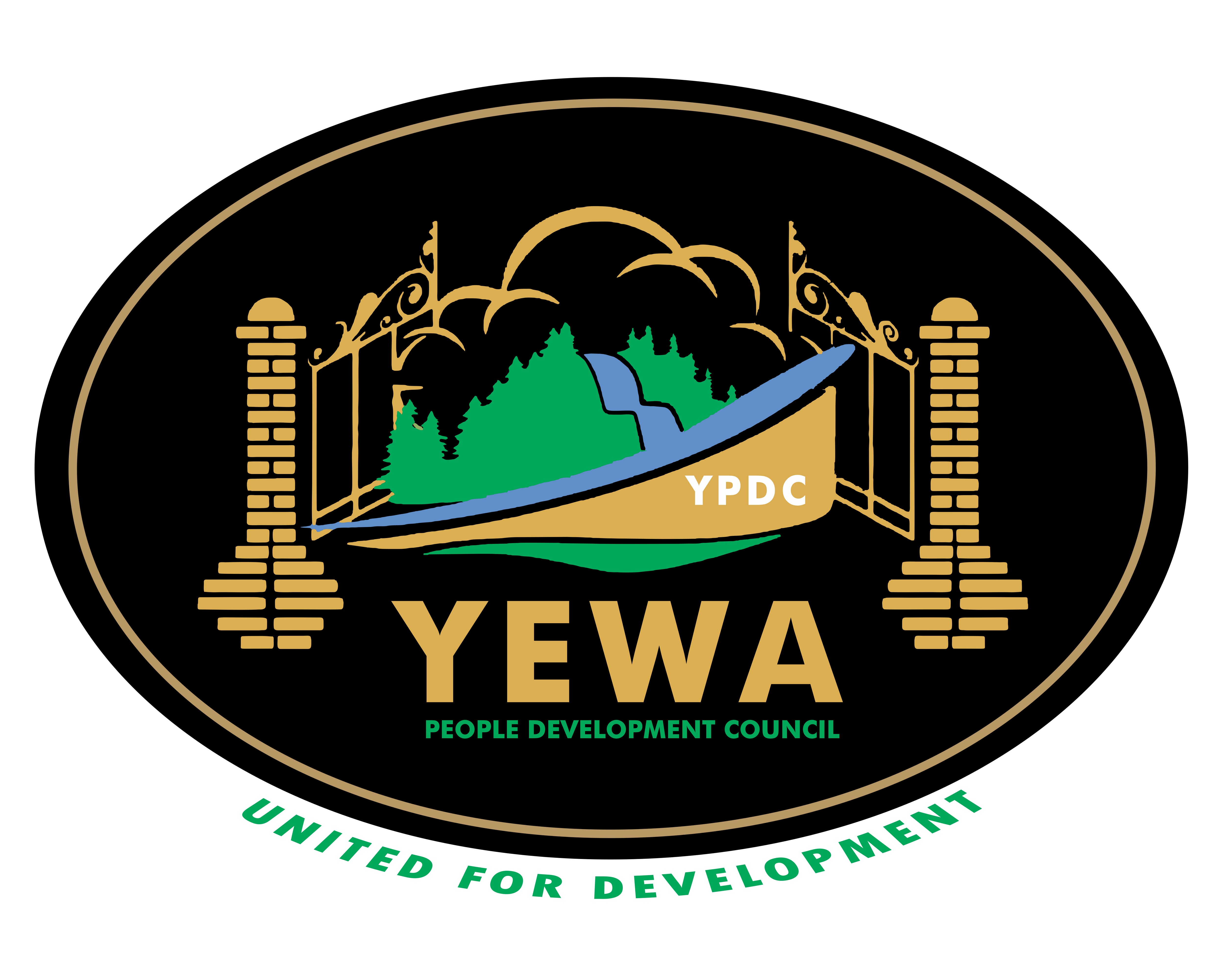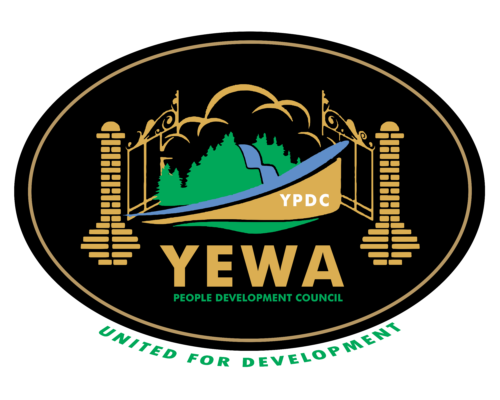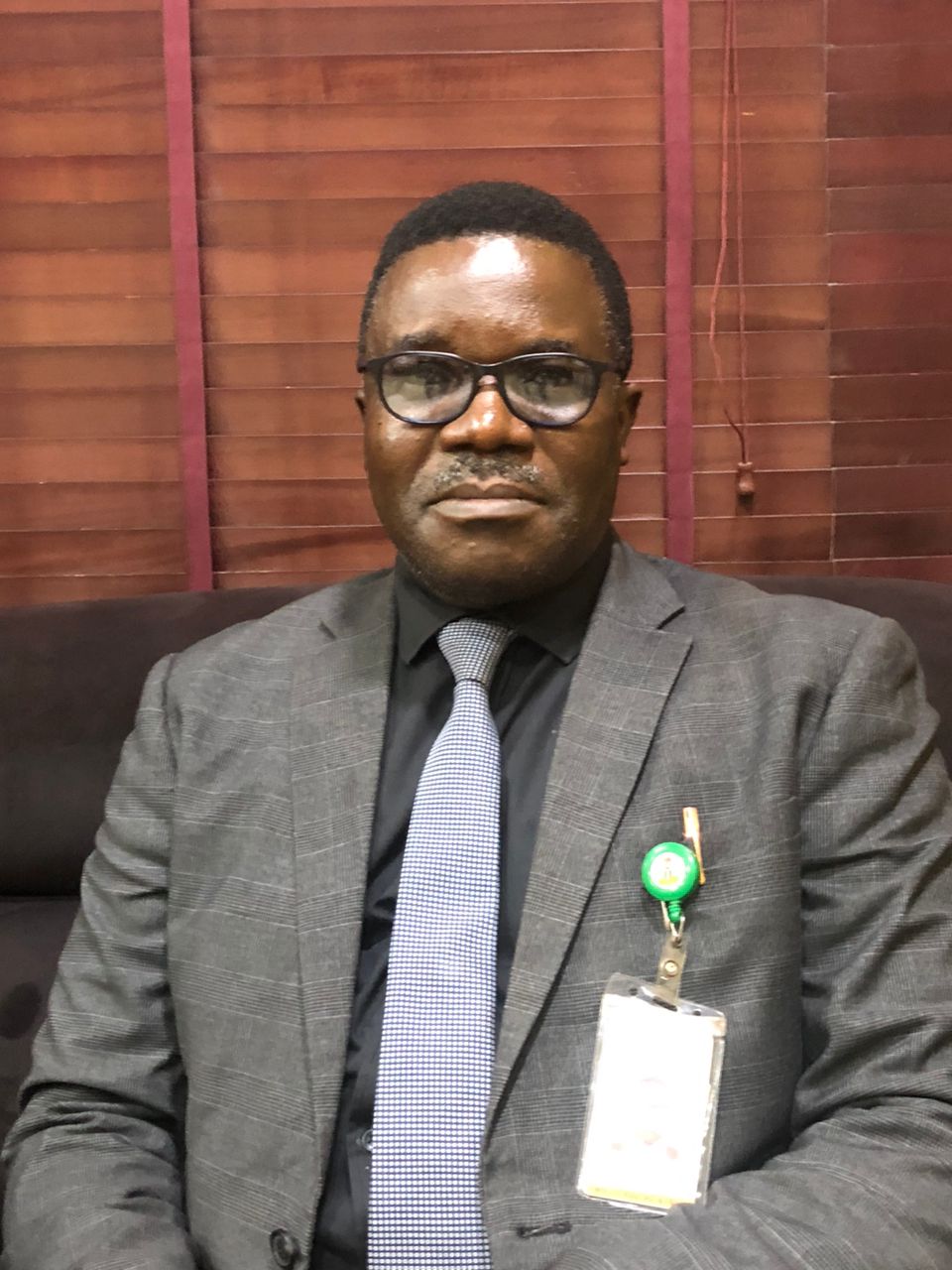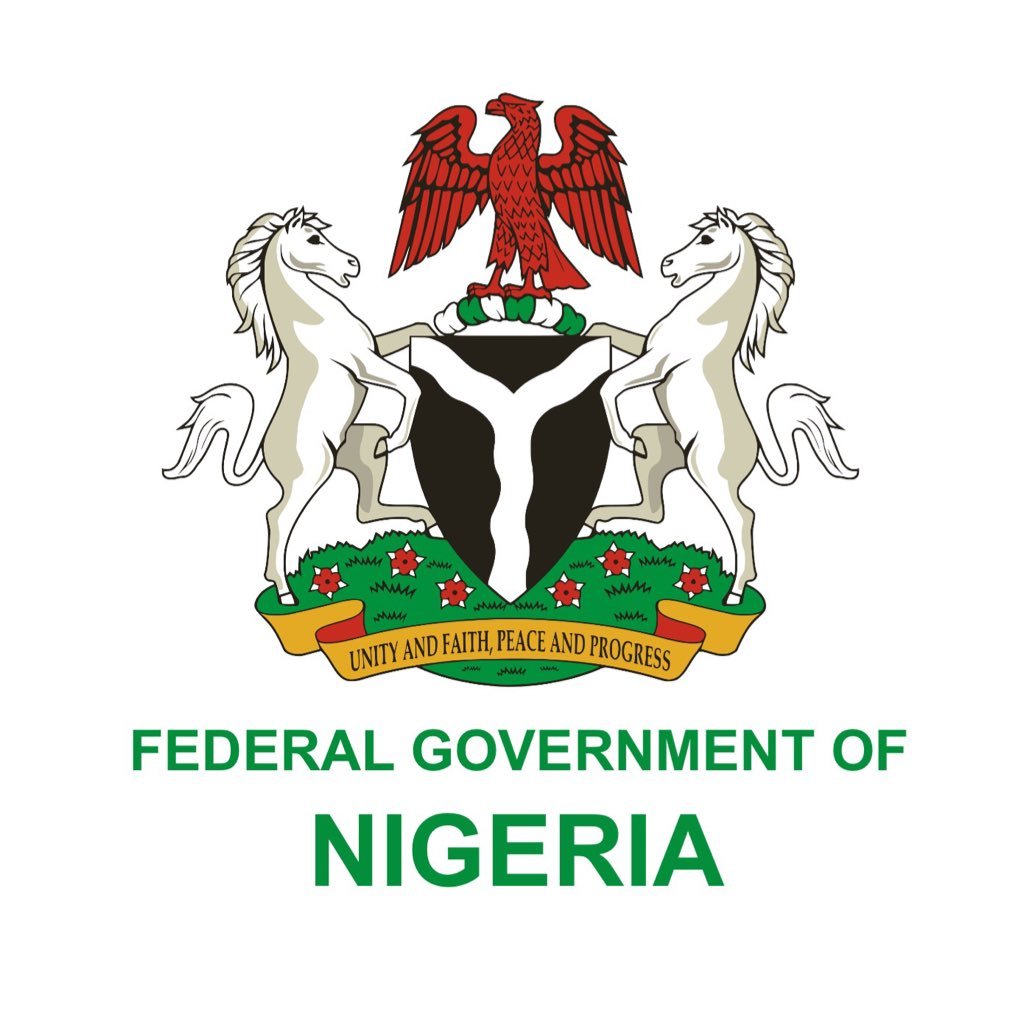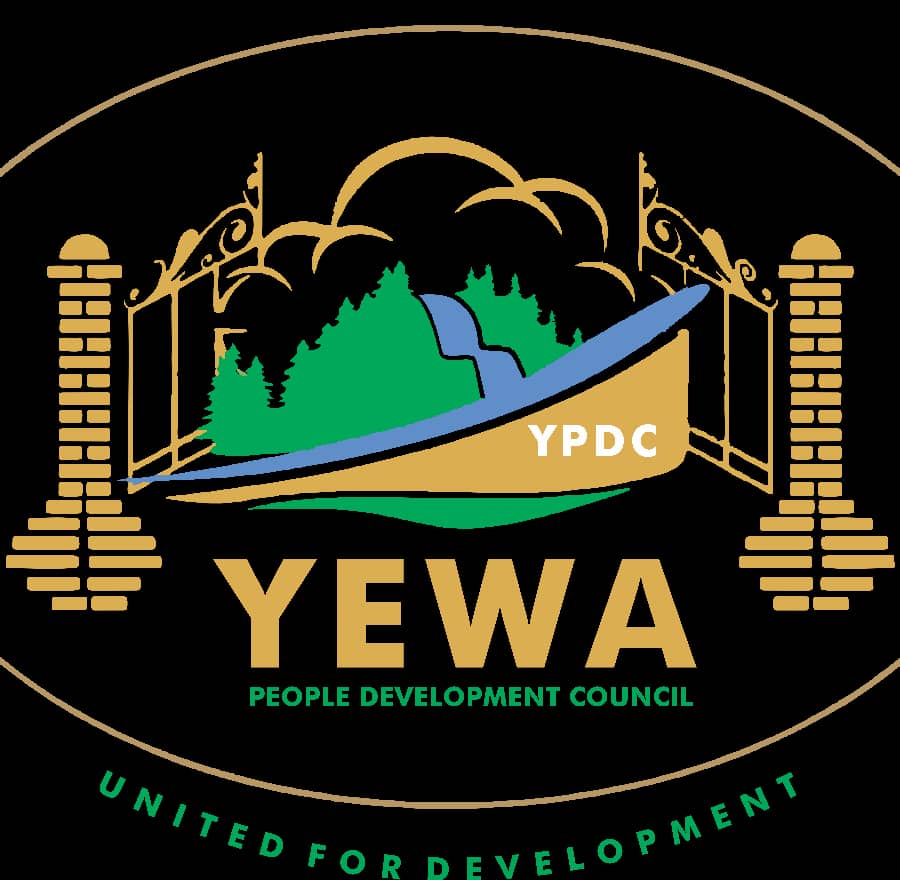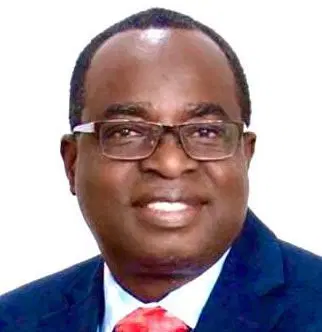
VANGUARD COLLECTIVE ACTION FOR YEWALAND: NURTURING DREAM AND COLLABORATION EFFORTS
By
Kayode OladeleBeing the text of a speech delivered at Yewa Day 2024 celebrations organized by the Yewa Descendants Union, UK and Ireland held in Kent, London, on Saturday September 14, 2024
The founding of Yewaland that is now home to many of us is not different from the origin of great many empires, in general, and many civilizations in Yorubaland, in particular. Historically the existence of Yewaland can be dated to the 13th century. The history of its origin is not different from the history of warriors, hunters, farmers seeking new vistas in virgin lands; deviants, migrating in protests to establish their own territories, usually in quest of freedom from unfair treatment at home by members of their families and clans. Some sources have linked the history of Yewaland, like that of most Yoruba nation-states, to Ile-Ife and Oyo Empire respectively.
By the composition of Yewa geographical territory, what constitutes Yewaland are Yewa South, Yewa North, Ipokia, and ImekoAfon Local Government Areas including some parts of Ado -Odo Otta Local Government Areas However, as a people, other important areas that constitute the Yewa nation include Ibara, Isaga and some parts of Ewekoro Local Government Area. For instance, both Ibara town and Oke -‘lewo, areas are in Abeokuta South Local Government Area. Yet, in Abeokuta North, Isaga-Orile, Ibara-Orile, Olorunda, Imala are prominent Yewa settlements.
At this juncture, it is pertinent to ask, if Soji Odunjo who was an aspirant for the ticket of the Unity Party of Nigeria (UPN) for Ogun State governorship had been chosen as a candidate, and had gone to be elected in 1979, would Yewaland had produced a governor of Ogun State? Chief Soji Odunjo was from Ibara, a Yewa settlement sitting comfortably in the heart of Abeokuta and it is undoubtedly, the heartbeat of the State Capital.
Perhaps, it is important to understand in whose behalf Yewaland and people are nurturing dreams and with whom are we to be collaborating. At this juncture, we, again, need to raise a fundamental question. Is Yewa dream synonymous with Ogun West agenda, knowing full well that the Aworis are also part of Ogun West Senatorial District or, is it separate from it? Thus, where is the place of the Awori people with the largest voting power in the politics of Ogun West? To be clear, the Aworis are in Ado-Odo/Otta Local Government Area, comprising several important towns and settlements with Otta, as its headquarters.
In seeking collaborative efforts and as a side comment, it is essential that a situation in which parts of Ogun West such as Otta in Ado-Odo/Otta Local Government Area have their paramount ruler in Ake, in Abeokuta in Ogun Central Senatorial District would need to be resolved. Today, Olota, Onijoko and Onilogbo, are under the Paramountcy of Alake of Egbaland while, Ado- Odo and Agbara are under the Yewatraditional council with the Olu of Ilaro as their Paramount Ruler. With these institutional contradictions and common challenges, there is a need for intentional and concerted efforts to unite in our collaborative efforts.
Nigeria is regarded as a Republic with traditional rulers accorded no significant roles in the governance template in the affairs of the state, but in reality, and beyond the dictates of constitutional provisions, communities still place high premium on the traditional institutions, precisely why politicians still accord them the status of a ‘gateway’ to the minds of their people on electoral matters. No government officials or even a state governor wants to be seen in an open confrontation with prominent Obas in his state, except such an Oba has lost the explicit confidence of his people. What this boils down to mean is that our traditional rulers and the institutions they represent are much cherished as custodians of our customs and traditions which also underscores the importance of their position during elections.
As I stated earlier and considering the crucial roles our traditional rulers play in contemporary politics either overtly or covertly, there is a need for strong collaboration between our traditional institutions and political actors in Ogun West in order to nurture our collective dreams and aspirations as a people.
However, a major part of the challenges militating against collaborative efforts, particularly, in Yewaland is the inevitable weakness of the Paramountcy whose power and authority does not cover the entire Ogun West Senatorial District, We know that the jurisdiction and authority of the Alake of Egbaland extends to the villages beyond Abeokuta metropolis to where every Egba lives and other Egbas such as Owu, Gbagura, Oke-Ona who have their independent and historical settlements in the geographical areas known as Egbaland do not discountenance the overlordship of the Alake over them. Similarly, the other Obas who have their palaces in their traditional settlements in the capital city of Abeokuta together with the paramount ruler regard the Alake as their central authority and duly defer to him.
Conversely, this is not the situation in Ogun West and its collateral damage to nurturing collective dreams is huge. Beyond political correctness, the inability of Olu of Ilaro to leverage his paramount authority on the whole of the communities in Ogun West as we have it in Ogun East and Ogun Central, where Awujale and Alake are regarded as undisputed authorities and sharing no powers with any other consenting authority in their respective senatorial districts is a major challenge for our political aspiration, though, not insurmountable.
Why then do we need collaboration in Ogun West?
The chronology of gubernatorial history of Ogun State since its creation on 3rd February, 1976, is intrinsically predicated on structural imbalance and paucity of equality among the various sub-ethnic groups that constitute the State. The seeming injustice against the Yewas and the entire Western segment of the State clearly defies its socio-economic significance and contributions to the State since its creation as well as its embedded human resources cutting across every profession around the globe.
Obviously, it is not the case that the Yewas or Ogun West Senatorial District lacks requisite human capacity to pilot the affairs of the State, nor the absence of necessary political consciousness among its people. Interestingly, Ogun West over the years has proven to be a zone of high cognitive political culture going by the arrays of strong and influential political gladiators we had in the first and second republics and even in the contemporary politics.
The salient question to ask is, why then does the Senatorial District continue to play the second fiddle in the leadership of the State despite its huge human endowment and economic significance, coupled with its active political participation and progressive culture?
You will agree with me that an answer to this salient question is multifaceted. While the Yewas in particular, have over the years committed political blunders in terms of inadequate consultation and ineffective mobilization across the State and among critical stakeholders, we have also not gotten it right in candidate selection, for instance, the caliber and weight of candidates we present forward as our flag bearers and this has always been an albatross to our political aspiration. This is because they were not products of wide consultations. They were unrealistic candidates that could not face real competition but forced on us by external benefactors who decided our choice and believed that we have to accept whoever they select for us as their preferred candidates, otherwise, there would be no deal.
Such imposition without widespread consultation and statewide acceptability usually creates bad political markets for our candidates who are not seen or regarded as products of democratic process.
Yewas also have always relied on primordial tendency and affirmative sentiment of “Yewa Lokan”, without paying serious attention to the quality, acceptability and marketability of candidates our political benefactors impose on us and put forward as gubernatorial candidates of Yewa extraction.
There were hardly any attempts to make conscious efforts towards producing the best candidate of high moral, intellectual and political values with substantial acceptability and endorsement across the State. As noted by the Honorable Minister of State for the Environment, Dr. Isiaq Kunle Salako as a guest speaker at the 8th Distinguished Lecture; “Yewa;Talk Series” organized by the Yewaland Development Forum (YDF): as the gateway to Ogun State, an average Ogun State citizen wants a Yewa man as Ogun State Governor but regrettably, we have not been able to properly harness our potentials and opportunities towards achieving our goal.
The Need for Affirmative Action.
Let us put issues in clearer perspective to enable us navigate in proper context some of the issues involved in any collaborative efforts towards Nurturing our Dreams for Yewaland.
To be clear, Yewa people in Yewaland, and Yewa settlements outside of Yewa-designated local government areas, namely, Yewa North, Yewa South, Ipokia, and Imeko/Afon Local Government Areas are historically disadvantaged as a voting bloc, compared to Ogun Central and Ogun East for political power in Ogun State project. For example, at the inception in 1976, Ogun West, the political enclave of Yewa people, was allocated two Local Government Areas (Egbado South and North), while Egba and Ijebu had four Local Government Areas a piece.
In 1979, when the race for the 2nd Republic commenced, Egbado North and South as we were then called, were given one senatorial seat in Chief Jonathan Odebiyi, while Egba and Ijebu/Remo had four senators shared equally amongst themselves – Chief Abraham Adesanya for Ijebu North and Ijebu Ode and Chief Daniel Ladega for Remo. In Egba, Chief Samuel Olu Sogbeyin represented Odeda/Obafemi-Owode at the Senate, while Chief Kunle Oyero was Senator for Ifo and Otta. It is important to note that Otta which was supposed to be part of Ogun West was then under Ogun Central.
In 1999 due to equal representation in the Senate under the 1999 Constitution, the Yewas were merged with the Aworis to form Ogun West Senatorial District and Ogun Central and Ogun East were accorded one senator each thereby making it a total number of three senators representing Ogun State at the National Assembly which represents the name number from each state of the federation.
With this demographical picture of the state, political observers believe that it may be difficult for the dream of Yewa people to produce a governor of their own, and on their own accord without internal political cohesion and the support of other Senatorial Districts anchored on fairness, equity and justice.
Truth is, without concerted consolidation of efforts to align with either the Central or the East, or the two, the nurtured dreams may be a forlorn wish. I guess such alignment should be easier to obtain with Ogun Central because of our cultural and traditional relationships. At the same time, Ogun East should be reminded that a pact with the Yewas, sealed in 1978, when the five votes of Yewa gave the Ijebu candidate of the Unity Party of Nigeria (UPN), Chief Olabisi Onabanjo the key of the Governor’s Lodge at OkeIlewo in 1979 was yet to be redeemed.
Above all, we should appeal to the sense of justice and fairness of the political leadership of Ogun East and Ogun Central respectively. Otherwise, how equitable is it that, since the advent of democratic dispensation in Nigeria, aftermath of the creation of Ogun state in 1976, no one of Ogun West or worst still, Yewa extraction has occupied the office of the Governor? Justice and fairness demand that under the principle of affirmative action, other Senatorial Districts should concede the Governorship seat to Ogun West.
This is not difficult to achieve, provided the political will is there to achieve fairness and justice in Ogun State. For example, Nigeria, as a country did it for Yorubaland, as a compensatory political gesture, aftermath of the political debacle, caused by the annulment of the results of the June 12, 1993, won by a candidate of Yoruba ethnic-nationality, Chief MKO Abiola. Thus, if the Nigerian state could do it for us as an ethnic group, fellow Yoruba should not find it difficult to do it for one of their own that has endured political marginalization for 48 years of co-habiting in the same geo-political space.
The Call for Unity in Ogun West.
While we may be calling for fair deal in the firmament of politics in Ogun State under the principle of affirmative action in the coming political dispensation, it is equally important that the house of Yewa and Awori people is put in order. And one way to begin to do this is to emphasize more of Ogun West dream than that of a ‘Yewa Agenda’ which appears to alienate many communities who are sentimentally attached to their different ancestral origins, but who, today, are occupying the same socio-geographical space with the Yewa people.
The Aworis silently resent being yoked, and being made as mere appendages in the calculus for the actualization of ‘other peoples’ dream. Yet, they equally feel marginalized in the politics of Ogun State and yawn for redemption and are prepared to actively join the Yewas in their common geopolitical zone to actualize their common aspiration. They wish to be treated as equal partners with equal equitable participation in Ogun West political project, especially considering the fact that they are the hens that lay the egg of Ogun State Internally-Generated Revenue (IGR). In our quest for fairness, charity must start at home.
Happily, our experience in the just concluded general elections and the contemporary political activities in Ogun West has shown that with effective collaboration and unity of purpose, Ogun West has the capacity to dictate the political pace and trajectory in Ogun State.
It is equally important that, within the Yewa enclave, a common unity is actualized, irrespective of our sub-ethnic differences. We must eschew all forms of micro -marginalized template in which even within us in Yewa, we feel some communities are inferior and cannot be made to produce a governorship candidate or that a governorship candidate can only come from a particular sub-ethnic group which some people have recently started peddling and branded as the “Core Yewa”. Who is a core Yewa and who determines the eligibility and qualification of a core Yewa?
We must as a matter of principle avoid what Professor Emmanuel Alayande, a prominent historian, and one-time Vice-Chancellor of the University of Calabar, once described as, ‘an atomistic society, perpetually in conflict with ‘itself’. As 2027 is fast approaching, let us beware of the ides of March, the traitors, back stabbers and the fifth columnists amongst us who will always be ready to sell their birth rights to other Senatorial Districts for a farthing. It had happened before, and it can still happen.
In forging a united and strong political front, we must eschew the tyranny of the majority, and consciously repulse its destructive tendency. Such hegemonic political psychology has always been a self- inflicted virus for the destruction of any society in which it thrives.
In Yewaland, there are sub-ethnic groups, just as there are sub-ethnic groups in the Egba confederacy. In Yewaland, we have the Iju, Isokan, Ketu, the Ije (Ohori, Anago and Egun) just as we have Egba Ake, Egba Oke-Ona, Egba Gbagura, and we have the Owus. While the Egbas in Abeokuta, all of whom, historically can trace sources of immigration from Oyo have been able to manage their internal differences and have been able to always have a common battle formation against ‘outsiders’, regrettably such unity of purpose has remained the albatross of Yewaland, and by extension, Ogun West in our effort to end the real and perceived age long political marginalization.
For too long, we have played the ostrich, turning around to blame perceived enemies for our political woes. The time to get it right is now! We have all within our power and capability to change the course of history.
What this means therefore, is that in support of our Affirmative Action and clamor for the coveted governorship position in Ogun State in 2027, we, as a people in Ogun West must be very definitive, pragmatic and intentional in putting forward a formidable and generally accepted governorship candidate for the election.
As our political leaders continue to build bridges of understanding and accommodation across the divides, appealing to the relevant stakeholders to concede to us the right to produce the next governor of our dear Ogun State, we must be ready and prepared to present a consensus candidate with proven capacity, appeal, resilience, experience, political sagacity and resources required to compete favorably with other governorship aspirants from other senatorial districts. It is important to change from our old ways and resolve to search for and present a common candidate that will be generally accepted by all. The best of us must be selected to represent the rest us.
We have to realize that no coach, worth his calling goes to a football competition with an ill-prepared and injury-stricken team and expects miracles to happen on the field of play! Our agitation must be matched with the readiness to play the game of politics according to its rules and avoid the pitfall of the past.
A logical analogy of this scenario is the consumer behavioral pattern in an open market; a rational buyer will only go for the best product irrespective of the sentiments, antics and emotional pleas of a seller with bad product that cannot meet the demands of the buyer. Because the buyer will always want value for his money, the best product will always be preferable to a bad one.
Concluding Remarks.
In this age of internet, we are in a global community, where communication across boundaries is already demystified. People are being organized for political meetings and marketing now take place across physical frontiers. In Diaspora, today, Yoruba communities connect with their root, contributing from Benin Republic, next door to us in Nigeria, just as Yoruba communities in UK, Ireland, USA, Cuba, Brazil, Togo, Trinidad and Tobago. Not only are they playing a significant role in shaping the societies and cultures of these countries, expanding our traditional culture, they make available inflow of funds, to the homeland, and they constitute a source of moral support for the homeland.
Today, Yewa communities outside of Yewaland are more conscious of their root. Is this consciousness being duly tapped to ensure they are appropriated, especially beneficially for nurturing the Dreams of Yewaland in a common project? For example, the people of Ipaja in Alimosho Local Government Area in Lagos State are originally Yewa who need to be integrated into the Ogun West agenda by appealing to their historical and filial relationship with the homeland. In Ibara, Oke-‘lewo, and major turns in Abeokuta North and South, in Europe and the Americas, there are Yewa people who have emotional attachment to the homeland. In Nurturing Dream and Collaboration Efforts, we cannot afford to leave them behind.
In closing, I wish to appeal to our people to cease from engaging in the ruinous game of political atomism that only set us against one another, thus depleting our energies and what ought to be political goodwill for the benefits of our cousins in other Senatorial Districts who owe us more than we owe them in the on-going race of unequal legs. In truth, the Ijebus, including Remo both of Ogun East, and who in 1979 we gave our consolidated support in the race to Oke-Mosan, and the Egbas, with whom we had a traditional relationship, both in the spirit of equity, fairness, and justice owe us helping “hands and legs” to realize our Ogun West agenda. But, as they say, “those who go to equity must go with clean hands”. We as people of Ogun West must put our house in order to enable us hold hands and match towards our Dreams.
